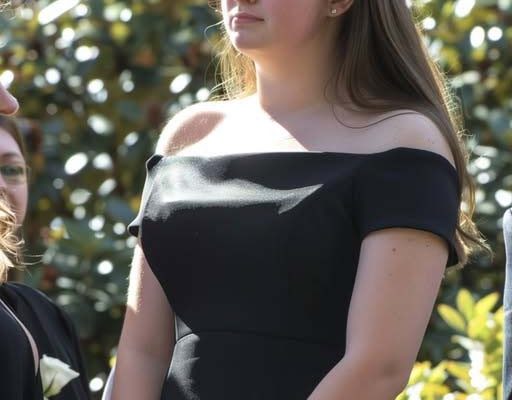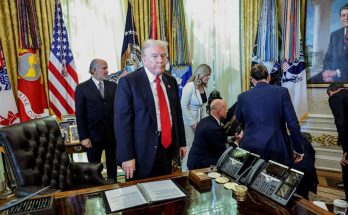“It’s mine,” I protested.
“It’s from him,” she snapped. “And he doesn’t get to be part of your life.”
She yanked the letter from my hand and shoved it deeper into the garbage.
I didn’t understand why it hurt so much—but I knew it did.
At twelve, I tried again. “Was he mean? Did he hurt you?” I asked while she folded laundry.
She didn’t look up. “He left. That’s all that matters.”
“But—”
“No ‘but.’ He didn’t want us. That’s all you need to know.”
So I let it go. Again.
Years passed. I stopped asking. I convinced myself I didn’t care. Until one day, a phone call shattered that illusion.
“Is this Emma Carlson?” a woman asked. “My name is Laura. I’m… your father’s wife. He passed away last week. I thought you should know.”
I didn’t know what to say. I didn’t even know how to feel.
She added gently, “The funeral is tomorrow. I think he would’ve wanted you there.”
The next day, I sat outside the chapel, frozen. I wasn’t sure I had the right to be there. But something made me go in.
A woman sat beside me and whispered, “Emma?”
I turned to her tear-streaked face.
“I’m Laura,” she said softly. “I’m really glad you came.”
After the service, she touched my arm. “There’s something you need to see. He left something for you.”
She handed me a small silver key.
At the lawyer’s office, we sat in a quiet room that smelled like leather and paper. Laura stayed by my side. The lawyer opened a thick file and said, “Your father left a trust, a personal safe, and a letter—specifically for you.”
I blinked. “He mentioned me?”
“Explicitly.”
A black lockbox was placed on the table. Laura inserted the key. Inside were documents, letters, and old photos. The lawyer handed me a file.
“Your father filed for visitation several times,” he said. “There were no findings of abuse or neglect. Your mother contested it, citing emotional instability, but nothing was ever proven.”
I flipped through the pages. Court filings. Hearing notices. Returned letters. My name was everywhere.
“He tried,” I whispered.
Laura nodded. “He never stopped.”
The lawyer slid a sealed envelope across the table.
“For the life I wish I’d been allowed to give you,” the letter read. “I hope this helps you build it anyway. I never stopped loving you.”
Tears ran down my face. I couldn’t speak.
Later, Laura took me to their home. We walked down a quiet hallway to a white door.
“He asked me not to change this room,” she said. “Not even when he got sick.”
She opened the door. My breath caught.
Photos of me lined the walls—school portraits, newspaper clippings, a graduation program. My fifth-grade art project sat on a shelf. My favorite childhood book rested on the desk. Even a dried flower was taped to the wall.
“That’s from your graduation bouquet,” Laura whispered. “He stood in the back. He didn’t want to cause a scene. He just wanted to see you.”
I nearly collapsed. “He really watched from afar?”
“He called this his hope room,” she said. “He hoped that one day, you’d walk through that door.”
I had spent my whole life believing he didn’t care. But here was proof that he did—quietly, fiercely, unwaveringly. I sat on the bed, holding one of his returned birthday cards. The sorrow was overwhelming—not just for what I had missed, but for what he had lost too.
In the weeks that followed, I visited Laura regularly. At first, it was awkward—just tea and small talk. But slowly, the walls came down.
She showed me photos of him fishing, dancing, laughing with his children.
“He made pancakes every Saturday,” she said once. “With smiley faces in syrup.”
Eventually, she said, “They’d love to meet you—if you’re ready.”
I wasn’t. But I said yes.
Her son Caleb looked just like him. Lily, her daughter, had his eyes. They welcomed me like I’d always belonged.
“Dad always cheated at Monopoly,” Lily said with a grin.
I laughed, surprised by how natural it felt.
They didn’t flaunt their memories. They offered them—to fill the holes in mine.
And slowly, I let go of the version of my father I’d been taught to resent. He wasn’t perfect. But he had tried. And that was enough.
One day, Laura looked at me and said, “He would’ve been so proud of you.”
And for the first time in my life, I believed it.
That changed everything.



